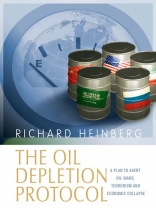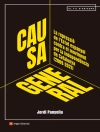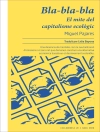Since oil is the primary fuel of global industrial civilization, its imminent depletion is a problem that will have profound impact on every aspect of modern life. Without international agreement on how to manage the decline of this vital resource, the world faces unprecedented risk of conflict and collapse.
The Oil Depletion Protocol describes a unique accord whereby nations would voluntarily reduce their oil production and oil imports according to a consistent, sensible formula. This would enable the task of energy transition to be planned and supported over the long term, providing a context of stable energy prices and peaceful cooperation. The Protocol will be presented at international gatherings, initiating the process of country-by-country negotiation and adoption, and mobilizing public support. To this end, this book:
- provides an overview of the data concerning Peak Oil and its timing
- briefly explains the protocol and its implications for the reader and for decision makers in government and industry around the world
- deals with frequently asked questions and objections, and
- looks forward to how the protocol can be adopted and how municipalities and ordinary citizens can facilitate the process.
Timely and critically important, The Oil Depletion Protocol is a must-read for policy makers and for all who seek to avert a Peak Oil collapse.
Listen to an interview with Richard Heinberg from WRPI.
Giới thiệu về tác giả
Richard Heinberg is the author of nine books and is widely regarded as one of the world’s most effective communicators of the urgent need to transition away from fossil fuels. With a wry, unflinching approach based on facts and realism, he exposes the tenuousness of our current way of life and offers a vision for a truly sustainable future.Senior Fellow-in-Residence at Post Carbon Institute in California, Heinberg is best known as a leading educator on Peak Oil and its impacts. His expertise, publications and teachings also cover other critical issues including the current economic crisis, food and agriculture, community resilience, and global climate change.












